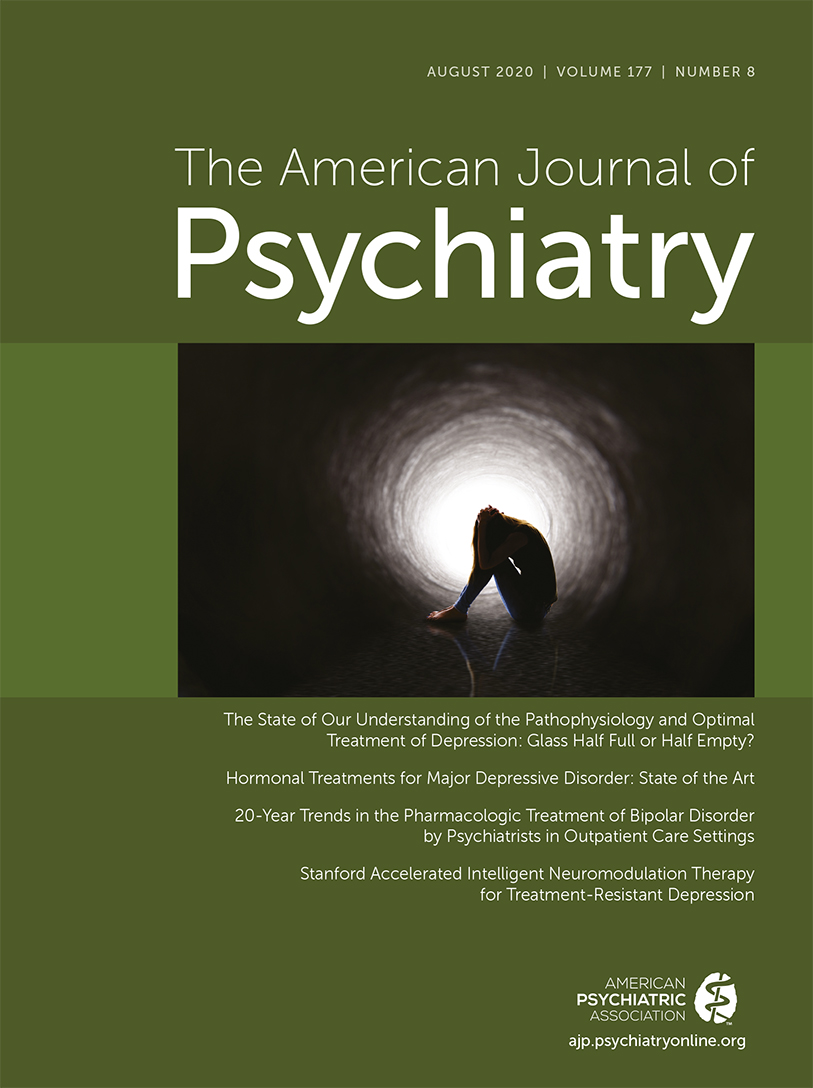Gender-Affirmation Surgery Conclusion Lacks Evidence
To the Editor: We have concerns regarding severe shortcomings in the study by Bränström and Pachankis (1) that call into question the authors’ conclusion that it “provides timely support for policies that ensure coverage of gender-affirming treatments.”
This study covered outcomes only for calendar year 2015 for all individuals living in Sweden on December 31, 2014. The retrospective metric of “time since last gender-affirming surgery” in Figure 1 in the article is easily misinterpreted as a prospective 10-year follow-up that did not occur and leaves open the question of number and type of prior surgeries.
The 2,679 individuals diagnosed with gender incongruence in Sweden is a full order of magnitude below prevalence expectations from DSM-5. Table 3 in the article indicates that 38% of these individuals had any kind of gender-affirming surgery, but only 53% of those had surgery of reproductive organs. Given that such treatment in Sweden is free, ample loss to follow-up is implied.
Measured outcomes were limited to “mood and anxiety disorder health care visits, antidepressant and anxiolytic prescriptions, and hospitalization after a suicide attempt.” This selection excludes completed suicides, suicide attempts without subsequent hospitalization, health care visits and hospitalizations for other medical or psychological issues still related to gender-affirming surgeries, individuals refusing treatment, and individuals choosing self-medication with alcohol or illicit substances. Again, significant loss to follow-up must be considered before declaring success.
Dhejne’s cohort study of 324 persons in Sweden undergoing sex-reassignment surgery used 30 years of data, population controls, and matching by birth year, birth sex, and reassigned sex (2). Through the Hospital Discharge Register, the authors evaluated discharge diagnoses, external causes of morbidity and mortality, and surgical procedure codes. Compared with the general population, patients who had sex reassignment surgery had 19 times the rate of completed suicide, almost three times the rate of all-cause mortality, nearly three times the rate of inpatient psychiatric care, and close to five times the rate of suicide attempts.
These important findings could have been updated to the current period, given the sharp rise in adolescent case presentations, use of puberty blockers, and changes in cross-sex hormones from agents like ethinyl estradiol to 17β-estradiol.
For those whose last surgery was 10 or more years earlier, how many completed suicide, died of other causes, or left Sweden prior to study initiation? A drop in hospitalizations for suicide attempts alone provides a very incomplete picture. When the data for such findings are accessible in the Swedish national registers, this omission is glaring.
The lack of control subjects, the limited 1-year time frame, and the avoidance of examining completed suicides and psychiatric hospitalizations are substantial study shortfalls. The study supports only weak conclusions about psychiatric medication usage and nothing decisive about suicidality. In overlooking so much available data, this study lacks the evidence to support its progender-affirmation surgery conclusion.
1 : Reduction in mental health treatment utilization among transgender individuals after gender-affirming surgeries: a total population study. Am J Psychiatry 2020; 177:727–734Google Scholar
2 : Long-term follow-up of transsexual persons undergoing sex reassignment surgery: cohort study in Sweden. PLoS One 2011; 6:e16885Crossref, Medline, Google Scholar



